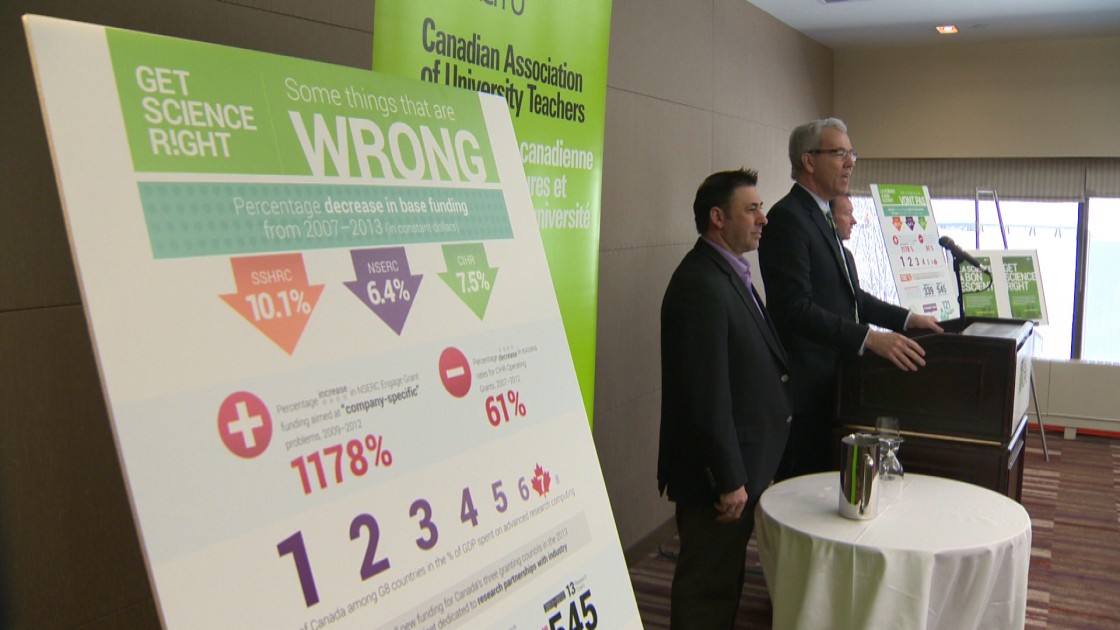TORONTO – Canada’s academics are giving the federal government a failing grade in science class.

The Canadian Association of University Teachers (CAUT) is calling for a complete overhaul of policies regarding science and how science is funded in Canada.
The CAUT held at press conference in Ottawa Thursday to launch their national campaign Get Science Right, highlighting the negative impact of the government’s approach to science and propose new methods to “ensure Canada doesn’t become a scientific backwater.”
“Science in Canada is at a tipping point,” James L. Turk, executive director of CAUT, said in a statement. “From the muzzling of scientists to the serious under-funding of basic research at our universities and colleges, the federal government is making dumb choices that will have serious consequences for all Canadians.”
CAUT said the campaign is in response to a growing outcry from the academic and scientific community after the 2013 federal budget provided no new funding for basic scientific research.
Turk said funding basic scientific research has led to innovations like GPS, MRIs, and XRAY.
“It is easy to understand that politicians want to put money into things where they can know where it is going to lead, but in science you don’t know where things are going to lead,” said Turk.
CAUT, which represents 68,000 academics and general staff from 120 universities and colleges across the country, is calling for neutral research funding agencies and the establishment of a Parliamentary Science Officer.
Kevin Page, former Parliamentary Budget Officer, told Global News that in certain cases there is a fear that large bureaucracies can undermine the role scientists play as public servants.
“What is at stake for federal scientists. For them they want their work to be published and it’s not just for them to feel good that their work sees the light of day,” said Page. “But there is scrutiny when their work becomes available so other scientists can use their work and the whole foundation for their science whether it is in the Arctic or fresh water lakes just keeps getting better and better.”
This announcement comes on the heels of an investigation by Federal Information Commissioner Suzanne Legault which began early April into how the government communicates taxpayer-funded science to the public.
The investigation began after the Environment Law Centre at the University of Victoria and the advocacy group Democracy Watch lodged a formal complaint accusing the federal government of “muzzling scientists.”
In the report “Muzzling Civil Servants: A Threat to Democracy?” the two groups offer several examples of how the right to access to information was impeded by government policies that restrict government scientists from with speaking with the media and Canadian public.
-With files from The Canadian Press




Comments